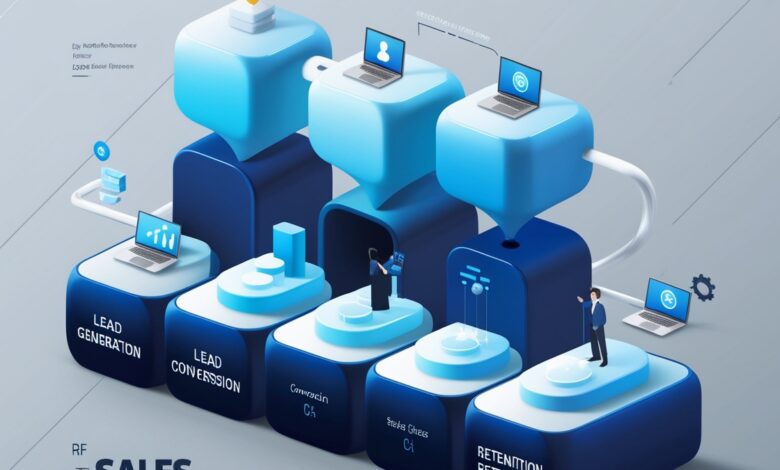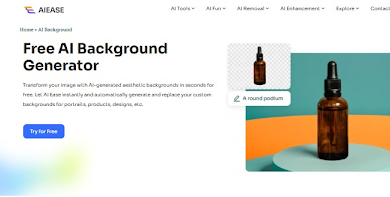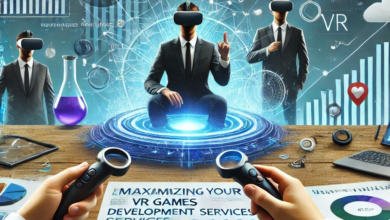How AI is Revolutionising Sales Funnel Building

Artificial intelligence (AI) is redefining the way businesses create and manage sales funnels. By integrating AI into sales funnel strategies, companies are gaining access to advanced tools that provide deeper insights, enhance customer targeting, and automate repetitive tasks.
Incorporating technologies such as AI-powered chatbots, predictive analytics, and the WhatsApp API has significantly streamlined customer interactions. For businesses, this transformation represents an opportunity to optimise every stage of the funnel, from lead generation to conversion.
The Role of AI in Sales Funnels
AI has introduced unprecedented efficiency into sales funnel management. By analysing vast amounts of data, AI algorithms can identify patterns in customer behaviour, allowing businesses to deliver highly personalised experiences.
Benefits of AI in Sales Funnels:
- Enhanced Lead Scoring: AI identifies high-potential leads more accurately.
- Personalised Recommendations: Tailored product suggestions based on user behaviour.
- Automation: Streamlines communication, such as email campaigns or chatbot responses.
By automating time-consuming tasks, businesses can focus more on strategy while maintaining meaningful customer engagement.
AI-Powered Chatbots: Transforming Customer Interaction
Chatbots driven by AI have become essential for businesses aiming to deliver 24/7 customer support. A WhatsApp AI chatbot, for instance, provides immediate responses to customer queries while seamlessly guiding users through the sales funnel.
Key Features of AI Chatbots:
- Natural Language Processing (NLP): Enables bots to understand and respond to customer questions accurately.
- Personalised Conversations: Uses customer data to provide relevant recommendations.
- Scalability: Handles multiple conversations simultaneously, ensuring no customer is overlooked.
Integrating chatbots into the sales funnel has proven particularly effective in addressing the awareness and consideration stages, as users receive real-time information tailored to their needs.
WhatsApp API: Revolutionising Communication
The WhatsApp API is a game-changer for businesses looking to leverage AI in their communication strategies. It enables companies to engage with customers in a personalised and conversational manner directly on their preferred platform.
Benefits of Using WhatsApp API:
- Targeted Campaigns: Send promotional offers to segmented audiences.
- Rich Media Integration: Share images, videos, and files for an interactive experience.
- Two-Way Communication: Facilitate quick responses, driving conversions faster.
By combining the WhatsApp API with AI, businesses can automate workflows, schedule follow-ups, and deliver personalised messages at scale.
Personalisation Through Predictive Analytics
Predictive analytics is one of AI’s most impactful contributions to sales funnel building. By analysing historical and real-time data, AI can forecast customer behaviours and preferences, enabling businesses to fine-tune their funnel strategies.
Examples of Predictive Analytics in Sales Funnels:
- Dynamic Pricing: Adjusting prices based on customer demand or behaviour.
- Customer Journey Optimisation: Identifying touchpoints that need improvement.
- Churn Prediction: Flagging customers likely to disengage and implementing retention strategies.
Personalisation driven by predictive analytics not only improves conversion rates but also enhances customer satisfaction by addressing their unique needs.
AI for Content and Campaign Optimisation
AI tools are increasingly being used to optimise content and marketing campaigns within sales funnels. From identifying trending topics to testing ad performance, AI ensures that every piece of content aligns with the target audience’s preferences.
AI-Driven Optimisation Techniques:
- A/B Testing: Automates the process of testing multiple campaign elements to identify the most effective.
- Content Suggestions: Recommends headlines, visuals, and call-to-actions for higher engagement.
- Campaign Automation: Schedules and delivers campaigns at optimal times based on customer behaviour.
Such capabilities not only save time but also ensure that marketing efforts are aligned with customer expectations, resulting in improved funnel performance.
Case Study: AI Integration in a Retail Funnel
A mid-sized e-commerce retailer faced challenges in managing customer inquiries and personalising product recommendations. By implementing an AI-driven solution, including a WhatsApp AI chatbot and predictive analytics tools, the business achieved significant improvements.
Key Outcomes:
- Enhanced Engagement: The chatbot handled over 80% of inquiries, guiding users to suitable products.
- Increased Conversions: Personalised recommendations based on predictive analytics led to a 25% rise in sales.
- Streamlined Operations: Automated follow-ups and campaigns reduced manual workload by 40%.
This demonstrates how AI can transform not only the sales funnel but also the overall customer experience.
Challenges of Implementing AI in Sales Funnels
Despite its advantages, adopting AI-driven sales funnels can present challenges. Businesses need to consider the following:
- Data Quality: AI relies on accurate and comprehensive data for effectiveness.
- Implementation Costs: Initial investment in AI tools and platforms may be significant.
- Integration Complexity: Ensuring seamless integration with existing systems, such as CRM and marketing tools.
Addressing these challenges requires a clear strategy and the right technology partners to support the transition.
Future Trends in AI-Driven Funnels
AI’s role in sales funnels is expected to grow, with several emerging trends already shaping the future:
- Voice Assistants: Voice-powered AI tools guiding customers through purchasing processes.
- Advanced Chatbots: Evolving capabilities to handle more complex queries and tasks.
- Hyper-Personalisation: Leveraging AI to deliver individualised experiences in real-time.
- Seamless Multichannel Integration: AI unifying customer journeys across platforms like email, social media, and messaging apps.
These advancements will further enhance the effectiveness of AI-driven sales funnels, ensuring businesses stay ahead in competitive markets.
AI is revolutionising sales funnel building by automating processes, delivering personalisation, and providing actionable insights. Tools like WhatsApp AI chatbot and the WhatsApp API have made customer communication more efficient and engaging. Predictive analytics, content optimisation, and dynamic personalisation are driving conversions while improving customer experiences.
While challenges such as data quality and integration costs remain, the long-term benefits of AI adoption far outweigh the initial hurdles. As AI technologies continue to evolve, businesses must embrace these tools to stay competitive, maximise efficiency, and create meaningful customer relationships.
By integrating AI into sales funnels, companies can ensure smarter, data-driven strategies that align with the demands of modern marketing and customer engagement.




